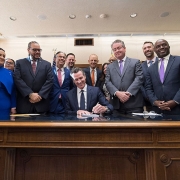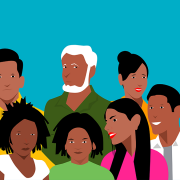Golden Land
In a way unimaginable in Europe, or even the eastern United States, the Golden State has long been, as one nineteenth century Gentile observer put it, “the Jews’ earthly paradise.” California, settled late and distant from the East Coast, had no entrenched WASP power elite, allowing Jews to achieve economic and political pre-eminence unheard of at that time.
Today, progressive California offers a less appealing landscape. The community that produced Levi Strauss, Hollywood, and numerous Silicon Valley billionaires faces increased hostility—in the political realm, at the universities and schools, on the streets, in literary circles, and even with antisemitic graffiti sprayed on the bathroom walls of coffee houses.
The growing hostility toward Israel and Jews here originates, as elsewhere, from Middle Eastern students, resident Muslims, and university professors. But, increasingly, it has extended to the grassroots level, at city councils and school boards. Almost all this opposition comes not from the Right, the historic base for antisemitism, but almost entirely from the progressive Left.
Anti-Israel sentiment increases in working class cities across California as the issue is tendentiously connected to local concerns. Jews increasingly confront hostility from black and Latino activists eager to exploit a narrative of Zionist domination across continents. It is unsettling to sit at a city council meeting in heavily Latino Santa Ana and see activists, with some success, sell the Palestinian cause as a question of “settler” repression, that also keeps minorities down here.
The council passed a resolution embracing a demand for the release of hostages and an affirmation of Israel’s right to exist, but the very loud, well organized pro-Hamas crowd dominated the event. The atmosphere was so hostile that as I left, members of my synagogue, located in the city, needed to have police help get them safely to their cars.
Why California Matters
For much of the past century, Jews worked closely with racial minorities; it was an alliance between Jews and blacks that elected Tom Bradley as Mayor of Los Angeles in 1973. Most Jews still identify as Democrats. In Los Angeles, the nation’s second largest Jewish city according to the Pat Brown Institute, at most a quarter of the Jewish population tilts to the generally more pro-Israel Republicans.
Jews came to California because it offered less discrimination and more opportunity. Unlike their counterparts in the East and Midwest, Jews were less likely to labor in sweatshops and generally thrived through commerce and the professions. They achieved widespread political influence, serving in the latter half of the nineteenth century as sheriffs, police chiefs, city council members, and county supervisors. Julius Kahn, a Republican, represented San Francisco for over 20 years. When he died, he was replaced by his wife, Florence Prag Kahn, who kept the seat until 1937.
The California experience has been largely ignored in the histories of Jews in America including Arthur Hertzberg’s The Jews in America, Yuri Slezkine’s The Jewish Century, and Norman Lebrecht’s Genius and Anxiety. But California, with 1.2 million Jews, is second only to New York; Los Angeles stands as the world’s third largest Jewish city. Overall, California has as many Jews as France, Britain, and Canada combined.
Read the rest of this piece at American Mind.
Joel Kotkin is the author of The Coming of Neo-Feudalism: A Warning to the Global Middle Class. He is the Roger Hobbs Presidential Fellow in Urban Futures at Chapman University and and directs the Center for Demographics and Policy there. Learn more at joelkotkin.com and follow him on Twitter @joelkotkin.
Homepage photo: Daniela Kantorova, via Flickr, under CC 2.0 License.


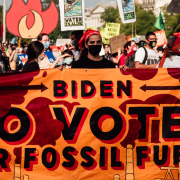
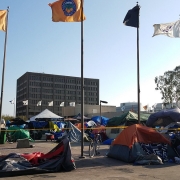
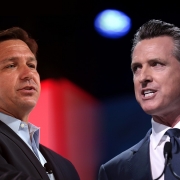 Gage Skidmore, used under CC 2.0 License
Gage Skidmore, used under CC 2.0 License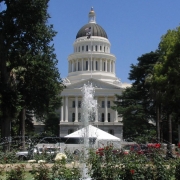 Kenu Lund, used under CC 2.0 License
Kenu Lund, used under CC 2.0 License